What would you do with 80 acres?
randall1234
9 years ago
Featured Answer
Sort by:Oldest
Comments (19)
chickencoupe
9 years agolast modified: 9 years agoRelated Professionals
New Bedford Landscape Architects & Landscape Designers · Chattanooga Landscape Architects & Landscape Designers · Port Royal Landscape Architects & Landscape Designers · Alpharetta Landscape Contractors · Coeur d'Alene Landscape Contractors · Galveston Landscape Contractors · Smyrna Landscape Contractors · Southbury Landscape Contractors · Thonotosassa Landscape Contractors · Vallejo Landscape Contractors · Wheat Ridge Landscape Contractors · Coatesville Decks, Patios & Outdoor Enclosures · Dracut Decks, Patios & Outdoor Enclosures · Gladstone Decks, Patios & Outdoor Enclosures · Northglenn Decks, Patios & Outdoor EnclosuresMacmex
9 years agolast modified: 9 years agoslowpoke_gardener
9 years agolast modified: 9 years agowulfletons
9 years agolast modified: 9 years agoLynn Dollar
9 years agolast modified: 9 years agoOkiedawn OK Zone 7
9 years agolast modified: 9 years agomulberryknob
9 years agolast modified: 9 years agochickencoupe
9 years agolast modified: 9 years agorandall1234
9 years agolast modified: 9 years agoLisa_H OK
9 years agolast modified: 9 years agoscottokla
9 years agolast modified: 9 years agoLisa_H OK
9 years agolast modified: 9 years agoMacmex
9 years agolast modified: 9 years agorandall1234
9 years agolast modified: 9 years agoLisa_H OK
9 years agolast modified: 9 years agosoonergrandmom
9 years agolast modified: 9 years agoLynn Dollar
9 years agolast modified: 9 years agoelliselk
6 years ago
Related Stories
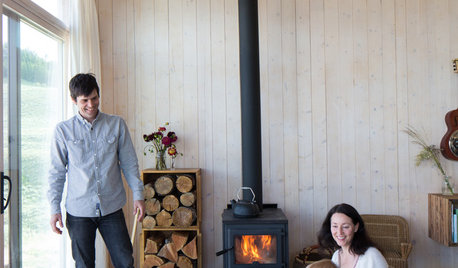
HOUZZ TOURSHouzz Tour: Family Builds Off the Grid Near the Cascade Mountains
Homeowners carefully construct a weekend home on 20 acres in remote northeast Washington
Full Story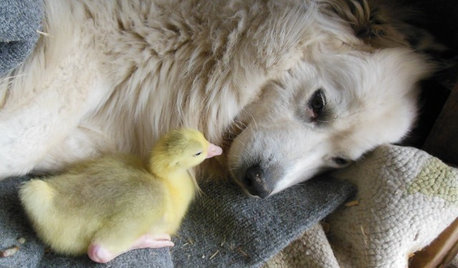
HOUZZ TV FAVORITESHouzz TV: Life, Love and Purpose Down on the Farm
A Missouri native proves that you can go home again — and discover something entirely unexpected
Full Story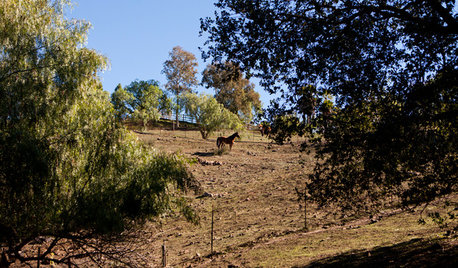
ECLECTIC HOMESHouzz Tour: Design Harmony for an Animal Rescue Ranch
Once dark and slapped together, this Malibu home now has balance and connection while keeping its jeans-and-boots comfort
Full Story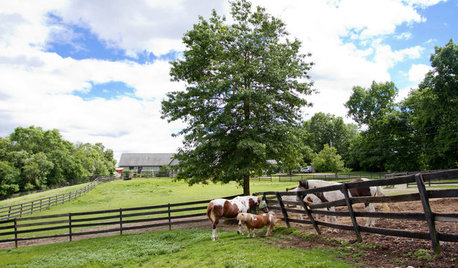
HOUZZ TOURSHouzz Call: Show Us Your Farmhouse!
Bring on the chickens and vegetable patches. If your home speaks country, it might appear in a featured ideabook
Full Story
HOUZZ TOURSMy Houzz: Better Flow for Feasts and Family in Alabama
Newly open spaces make this home ideal for entertaining, but intimate areas keep things personal
Full Story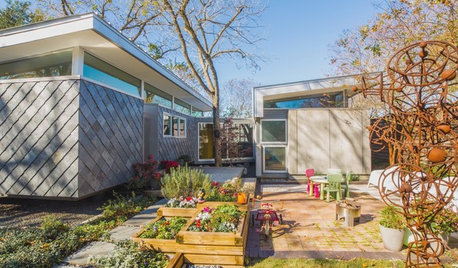
HOUZZ TVHouzz TV: Fun Family Living in 980 Square Feet
In a place known for going big, a family of 4 opts for creative space savers and subtle luxuries instead
Full Story
KITCHEN DESIGN3 Steps to Choosing Kitchen Finishes Wisely
Lost your way in the field of options for countertop and cabinet finishes? This advice will put your kitchen renovation back on track
Full Story
MATERIALSMaterials Workshop: Polycarbonate — a Low-Cost Alternative to Glass
Looking for something lighter, stronger and less expensive than glass? Multiwall polycarbonate may be a good option
Full Story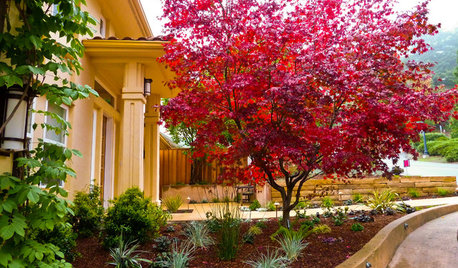
LANDSCAPE DESIGN7 Great Trees for Summer Shade and Fall Color
These landscape-pro faves straddle the seasons beautifully. Could one enhance your own yard?
Full Story
GREAT HOME PROJECTSHow to Create a Secret Doorway Behind a Bookcase
Hide your valuables (or unsightly necessities) in a room or nook that no one will guess is there
Full StoryMore Discussions






Doreen5050